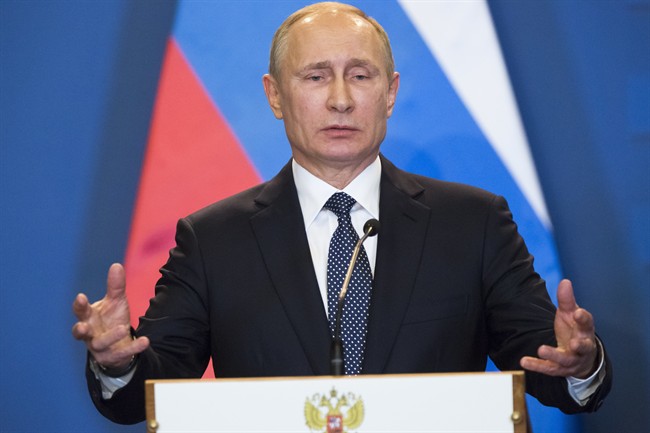U.S. Ambassador Nikki Haley urged the U.N. Security Council on Tuesday to impose an arms embargo and additional sanctions on South Sudan to pressure the parties to end the civil war in the world’s newest nation – but Russia and China remain opposed.

Two counties in South Sudan are already in the throes of famine and Haley warned the council that 5.5 million people – half the country’s population – face “life-threatening hunger if nothing changes soon.”
WATCH: Russia blocks U.N. condemnation of Syria attack

“We must not wait for more deaths, more displacement and more destruction before we have the courage to act,” she said.
There were high hopes that South Sudan would have peace and stability after its independence from neighboring Sudan in 2011. But the country plunged into ethnic violence in December 2013 when forces loyal to President Salva Kiir, a Dinka, started battling those loyal to Riek Machar, his former vice president who is a Nuer.
A peace deal signed in August 2015 has not stopped the fighting, and clashes last July between supporters of Kiir and Machar set off further violence. The conflict has killed tens of thousands of people and forced 3.5 million to flee their homes.
- South Africa celebrates 30 years since end of apartheid, but discontent grows
- Alberta to overhaul municipal rules to include sweeping new powers, municipal political parties
- Grocery code: How Ottawa has tried to get Loblaw, Walmart on board
- Norad looking to NATO to help detect threats over the Arctic, chief says
In March, a U.N. inquiry found the country is experiencing ethnic cleansing and the conditions for genocide are present.
Haley said the beneficiary of the division in the Security Council is South Sudan’s government.
“So if you want them to continue to harass the people of South Sudan, if you want to continue to see starvation in South Sudan, doing nothing is exactly what you need to keep doing,” she told council members. “But if we’re going to stop it … that’s not about dialogue. That’s not about hope. That’s not about wishes. That’s about action.”
But Russia’s deputy U.N. ambassador Petr Iliichev reiterated Moscow’s opposition to ramping up sanctions, saying peace “will not be brought about by a Security Council arms embargo but rather by targeted measures to disarm civilians as well as to demobilize and reintegrate combatants.”
WATCH: ‘Right now we’re not getting along with Russia at all’: Trump

“We also think there is a need to listen to the views of regional countries, that discussions on the levying of additional restrictions against Juba would be untimely,” he said.
China’s deputy U.N. ambassador Wu Haitao said “it is important for the Security Council to send out more positive and enthusiastic messages.”
He stressed that a political settlement is the only way to end the conflict and expressed hope that the U.N., the African Union and an eight-member regional group, the Intergovernmental Authority on Development,can join forces to promote negotiations.
Haley also urged all parties “to seriously engage” with the U.N., AU and IGAD to achieve a cease-fire and immediate humanitarian access.
“And we call on the AU and U.N. envoys to put forward an operational plan of active engagement for peace in South Sudan,” she said.
WATCH: Famine-hit South Sudanese eat weeds and water lilies to survive

U.N. envoy David Shearer told the council, however, that no party has shown interest in reviving the 2015 peace agreement.
“Despite what appears to be attempts by the parties to achieve victory through military means, a political solution is the only way forward for South Sudan,” he said. “Military offensives are fracturing groups and intensifying ethnic divisions to a degree that will hinder reconciliation.”
He stressed that “to create political will for the parties to end hostilities and build peace, the international community must speak with one voice (and) the African Union, the Security Council and IGAD must be united in dealing with the parties.”



Comments